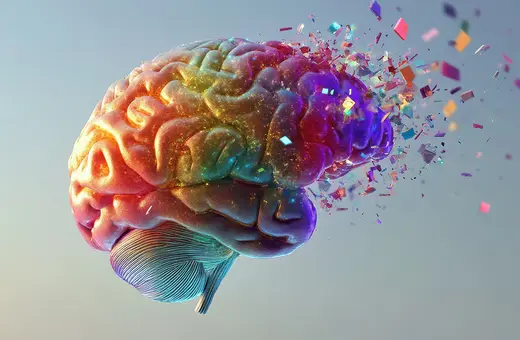We like to think belief and emotion belong in different boxes—one ruled by evidence and truth, the other by feelings and moods. But that divide is an illusion, argues philosopher Miriam Schleifer McCormick. We’d do better to think of beliefs as emotions, because believing involves feeling something to be the case, and the worth of a belief depends not just on the evidence for it but on whether it helps us live well. The ideal believer is not, as the AI industry might have us think, a flawless information-processing system, but a being whose reason breathes with emotion.
Beliefs figure prominently in how we understand each other, are essential for navigating the world, and help define our characters and motivations. But what are beliefs? According to standard philosophical theories of belief, an ideal believer is a flawless information-processing system. Of course, we fail to live up to this ideal because of our human limitations. We get angry, despondent, dazzled, exuberant, grief-stricken, horny, hungry, lazy, sick, tired, wonderstruck. The standard view sees these human traits as infecting our belief-maintenance systems, sometimes to explain our bad beliefs and sometimes to show that what may look like a belief, say that God is a comforting presence, is not a belief at all because it is not even aiming at this ideal.
___
When I am afraid, I feel that there is danger. Similarly, I contend, when I believe something, I feel that the way I am representing the world is accurate.
___
In my book Belief as Emotion (OUP, 2025) I offer an alternative picture of belief. I propose that we view belief as a type of emotion. Most emotion theorists view emotions as essentially blended states, as involving both feelings as well as some kind of cognitive representation. The elements that make up the blend are not separable mental states that are added together. When I am afraid, I feel that there is danger. Similarly, I contend, when I believe something, I feel that the way I am representing the world is accurate. Emotion is such a wide tent, encompassing everything from fear and anger to curiosity and contentment; I propose that “belief” be added to the list. Thinking of beliefs as emotions helps to explain several puzzling phenomena related to belief. Why, for example, do we continue to act on implicit biases even when we are aware of them? Why do many people claim to hold religious beliefs while not acting in accord with religious doctrine? Ideal emotional maintenance is complex; thinking of beliefs as emotions acknowledges and embraces this complexity in our lives as believers.






















Join the conversation